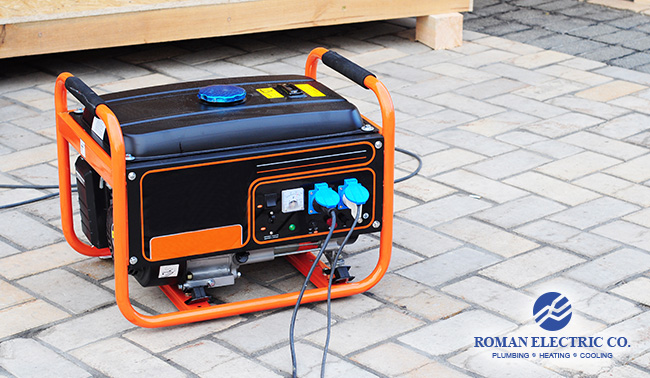Generators are an amazing asset for home and business owners, and they are particularly helpful in areas with frequent power outages. As with any electrical appliance, you need to know how to work your generator the right way to avoid an issue.
Generators feature transfer switches responsible for monitoring the electrical currents that flow throughout the system. Once flipped on, they send power through the wiring system to your unit. Some generators can be set to automatically switch on if there is not a sufficient electrical source to your home or business.
Since high electrical currents power generators, it’s essential to understand how to use them correctly. This article will talk about the most important facts you should know about generators during power outages. Let’s dive right in!
Things to Know about Generators During Power Outages
1. Inverters Protect Generators from Dirty Power
If generators lack inverters, they can ultimately produce what the industry calls dirty power. Electricians measure the quality of your power supply by its THD or total harmonic distortion. When a live current has low THD, it can easily damage your electronic devices that are plugged in when the generator powers on. In some generators, motors get overheated when the electrical currents come with high-grade THD, which only further damages your property.
If you want to ensure clean power to your home and electronic appliances, ask your electrician to install a generator with the inverter. Inverters lower THD to almost 5%, keeping your appliances safe during power outages and surges.
2. Pay Attention When Generators are Running
Having a generator ensures instant power with no additional effort. Still, it’s necessary to perform maintenance regularly to ensure that your appliance works during a power outage. Keep your generator clean, and check it frequently for dirt, debris, or other buildups.
If the generator lacks adequate airflow, it will overheat and fail to work correctly. Dirt and debris can damage the generator’s components and covers, making it challenging to perform. With some simple maintenance steps, you can keep your generator in top shape for years. Follow these tips to ensure the longevity of your investment:
- Clear away any debris from your generator and at least five feet around its sides.
- Remove anything off the top of your appliance.
- Check whether the vents are free of buildup.
- Keep your appliance supplied with fresh generator oil that’s proficient enough for safe and effective operations.
3. Avoid These Improper Ways of Using Generators
Another way to avoid a problem is to ensure you’re using your generators the right way. These tips will help:
- Never backfeed the electrical throughout the system unless you are familiar with the proper transfer switch and setup. Improper electrical setups can cause severe damage to any electronic device that is plugged into the electrical source.
- Try not to place your generator in a closed area without ventilation, such as a basement or garage.
- Do not put your generator near your AC unit because it can suck carbon monoxide into the system and throughout your home.
- Try not to put the generator in a wet area. GFCI protected outlets are ideal for keeping the cords off the ground.
- Install additional carbon monoxide detectors in your home when you are using the generator for an extended time.
Contact Innovative Electric for All Your Generator Needs
Whether you need a Riverside electrician to install, maintain, or repair your generator, we’re here to help! Contact Innovative Electric today to schedule an appointment.

Leave a Reply